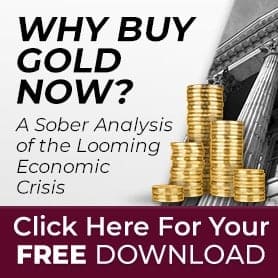RATE AND REVIEW this podcast wherever you listen.
Turkey’s Current Account Deficit
The “Turkey baste” continued on Monday, although Tuesday we did have a bit of a reversal, Tuesday bounce in the lira, rising about 7 percent or so, in today’s trading. But still, it is down considerably from where it was a few weeks – a few months ago. But I do believe that the financial media is exaggerating the problems that existed in Turkey prior to the crisis reaching the headlines. Yes, Turkey has a current account deficit, but the current account deficit is not nearly as large as the media is making it out to be. In fact, it is similar in size to the current account deficit that the United States is running, if you look it as a percentage of GDP. In fact, Turkey’s trade deficit is a much smaller percentage of its GDP than is the American trade deficit.
Dollar Strength Hurting Emerging Markets
The problem in Turkey is twofold: one is the strengthening dollar, which is putting pressure on all of the emerging markets’ currencies and economies. It’s just that Turkey was a weaker link in that chain, so Turkey is being disproportionately impacted by the outlook that the dollar is going to keep rising. This puts a lot of pressure on economies where there has been a lot of foreign investment. A lot of loans are in dollars. A lot of the money that has been coming into the Turkish economy has been private investment, fueling capital investment within the Turkish economy. It ‘s not the government borrowing all this money; it’s businesses borrowing money. The international community was willing to lend. After all, interest rates were really low for a long period of time and so capital was chasing a higher yield and some of that capital went into emerging markets, including Turkey. But obviously, you have a lot of loans that are dollar denominated and that’s one reason that a rising dollar is so bad for emerging market economies.
Erdogan’s Populist Policies Critical of High Interest Rates
What really elevated the problem for Turkey was not simply that the currency was falling, but look at what President Erdogan was saying: he is a populist leader who is saying things that appeal to voters. He’s also appealing to nationalism. Trying to make it “Turkey against the world”. Pursuing policies that put Turkish interests first. He has been critical of the Central Bank raising interest rates. He has been particularly critical of the whole concept of raising interest rates.
Podcast: Download










